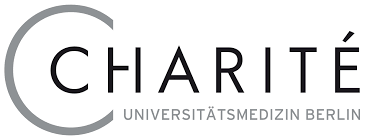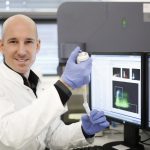
Charité-Universitätsmedizin Berlin
Clinic for Surgery, Transplant Immunology Lab
Role of Innate Lymphoid Cells (ILC) in Solid Organ Transplantation
Over the past decades the development of modern immunosuppressive therapies has resulted in substantial improvement of short-term allograft survival in solid organ transplantation (SOT). However, an improvement of long-term function is still an unmet medical achievement reflected by the high incidence of kidney and liver transplants with graft failure after years. In order to fill the gap between decreasing numbers of available organs and increasing waiting lists, the utilization of marginal organs or so-called organs from expanded criteria donors (ECD) has been implemented in the clinical routine. Donor age is the most important risk factor defining an ECD organ, but donor brain death (BD) and ischemia-reperfusion injury (IRI) represent additional risk factors for organ quality, synergistically contributing to inferior graft outcome. Recently, we demonstrated that human senescent kidney grafts are characterized by the high expression of the Natural Killer (NK) cell-associated activating cytotoxicity receptor NKG2D, which was associated with restricted graft function. Applying a murine model of BD, we further demonstrated that donor BD results in a significant organ-specific redistribution of cells belonging to the innate immune system. Recently, the discovery of innate lymphoid cells (ILCs) has led to the identification of a multifaceted group of innate tissue-resident cells which are involved in desired and undesired immune responses, organ homeostasis and regeneration. In the context of SOT, the role of ILC has not been comprehensively studied so far. Our preliminary data demonstrate that potentially regenerative ILC type 2 (ILC2) cells reside within the kidney. These cells have completely disappeared after experimental allogeneic kidney transplantation, whereas potentially pro-inflammatory classical NK cells populate the allograft. Moreover, we further generated for the very first time data pointing towards a redistribution of ILC subsets in aged versus young organs. In the present project, we will examine how ILC biology is impacted by the transplantation-associated risk factors age, BD and IRI and whether these risk factors- induced ILC alterations relate to allograft outcome. These studies will be complemented by the phenotypical and functional analysis of ILC in the clinical context by examining renal and hepatic zero-hour biopsies as well as perfusates following machine perfusion for organ reconditioning. As SOT entails the confrontation of both donor and recipient immunity, we will monitor the intra-organ composition and function of both donor- and recipient-derived ILCs by studying their migration to and persistence in the allograft as well as to distal organs. To decipher whether the transplantation-associated redistribution of donor or recipient ILCs is associated with altered graft function, we will therapeutically interfere with ILC migration capacity and analyse the outcome. Based on previous studies suggesting a role for Interleukin-33 and Interleukin-25 in the regeneration processes following kidney damage, we will address whether treatment of the donor or recipient can reduce tissue injury post-transplantation and whether this process is mediated by the induction of regenerative ILC2. In summary, we will for the very first time comprehensively study the role of ILC in the context of solid organ transplantation and test strategies to therapeutically manipulate ILC biology towards tissue homeostasis and regeneration, thereby improving graft function.
LAB MEMBERS


PUBLICATIONS
Ashraf, MI, Sarwar A, Kühl AA, Hunger E, Sattler S, Aigner F, Regele H, Sauter M, Klingel K, Resch T* and Kotsch K*. Natural Killer Cells Promote Kidney Graft Rejection Independently of Cyclosporine A Therapy, Frontiers Immunology, 2019 Sep 24;10:2279, IF=4.716
Ritschl PV, Günther J, Hofhansel L, Kühl AA, Sattler A, Ernst S, Friedersdorff F, Ebner S, Weiss S, Bösmüller C, Weissenbacher A, Oberhuber R, Cardini B, Öllinger R, Schneeberger S, Biebl M, Denecke C, Margreiter C, Resch T, Aigner F, Maglione M, Pratschke J*, Kotsch K*. Graft Conditioning by Peri-operative Perfusion of Kidney and Liver Allografts with Rabbit Anti-thymocyte Globulin – A prospective, single-center, single-blinded, randomized, placebo-controlled trial, Frontiers Immunology, 2018 Aug 24;9:1911, *equally contributing, IF=4.716
Fabritius C, Ritschl PV, Resch T, Roth M, Ebner S, Günther J, Mellitzer V, Nguyen AV, Pratschke J, Sauter M, Klingel K, and Kotsch K. Deletion of the Activating NK Cell Receptor NKG2D Accelerates Rejection of Cardiac Allografts. Am J Transplant. 2017 Dec;17(12):3199-3209, IF=7.163
Resch T, Ashraf MI, Ritschl PV, Ebner S, Fabritius C, Brunner A, Regele H, Günther J, Weiss G, Kotsch K. Disturbances in iron homeostasis result in accelerated rejection after experimental heart transplantation, J Heart Lung Transplant, 2017 Jul;36(7):732-743, IF=8.578
Günther J, Resch T, Hackl H, Sattler A, Ebner S, Ritschl PV, Biebl M, Öllinger R, Schneeberger S, Brandacher G, Schwelberger H, Stauch D, Pascher A, Pratschke J, Kotsch K. Identification of NKG2D as senescence marker in zero-hour kidney biopsies is indicative for clinical outcome, Kidney Int. 2017 Jun;91(6):1447-1463, IF=8.306
Ritschl PV, Ashraf MI, Oberhuber R, Mellitzer V, Fabritius C, Resch T, Ebner S, Sauter M, Klingel K, Pratschke J, Kotsch K. Donor brain death leads to differential immune activation in solid organs but does not accelerate ischaemia-reperfusion injury. J Pathol. 2016 May;239(1):84-96, IF=5.942
Oberhuber R, Ritschl P, Fabritius C, Nguyen AV, Hermann M, Obrist P, Werner ER, Maglione M, Flörchinger B, Ebner S, Resch T, Pratschke J, Kotsch K. Treatment with tetrahydrobiopterin overcomes brain death-associated injury in a murine model of pancreas transplantation. Am J Transplant. 2015 Nov;15(11):2865-76, IF=7.163